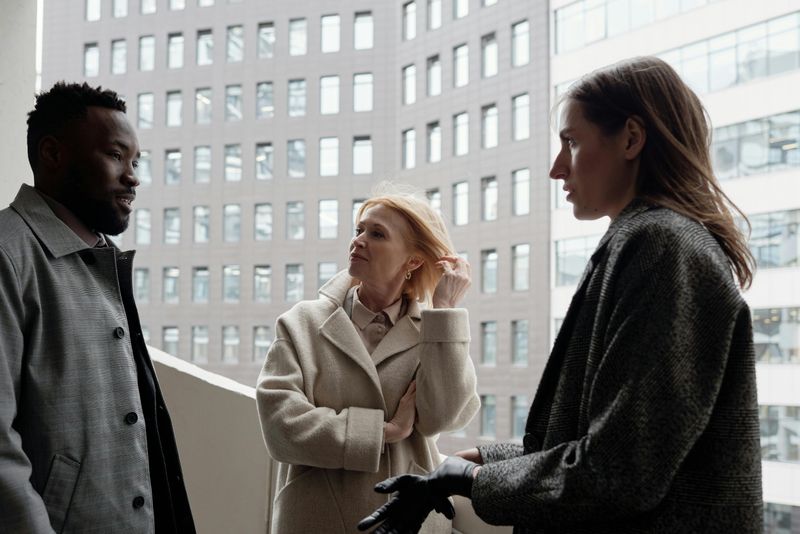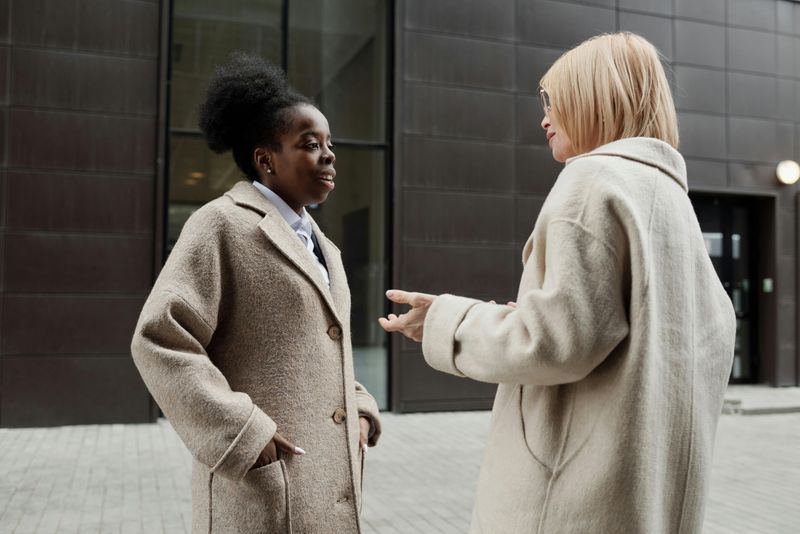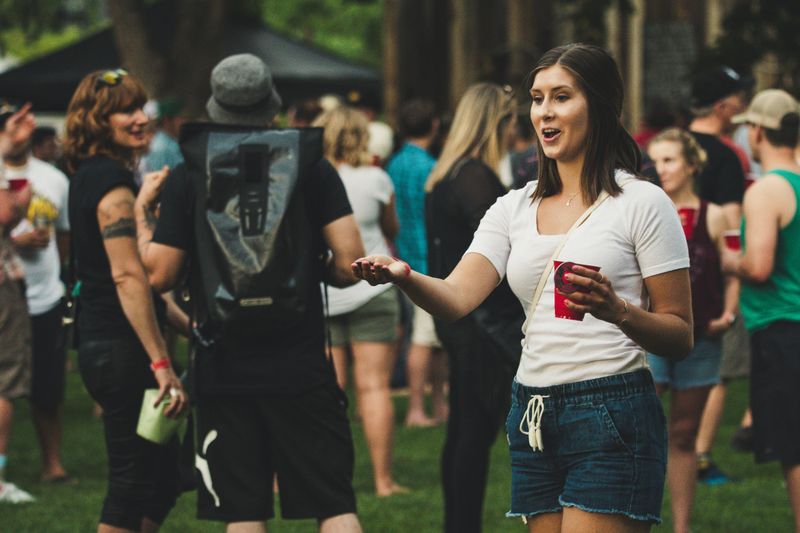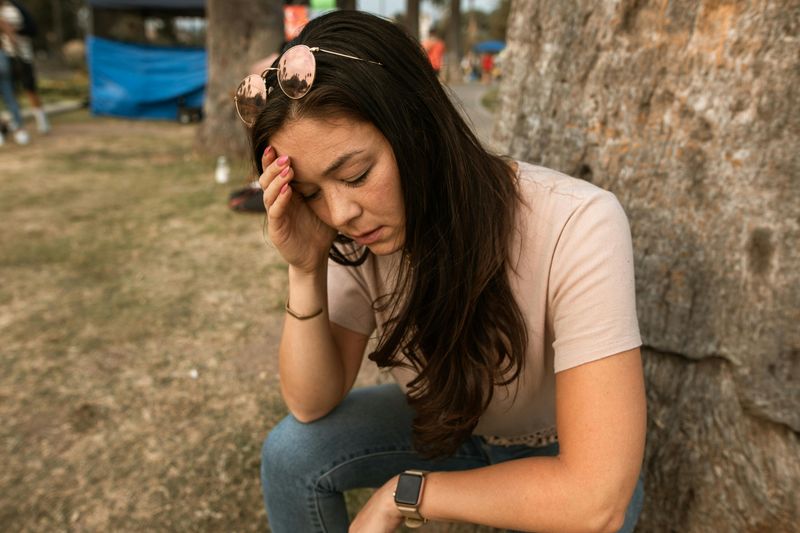Feeling wiped out after spending time in crowded places isn’t always about being an introvert. Many people experience mental and physical exhaustion when surrounded by large groups, even if they enjoy socializing. Your brain works overtime in busy environments, processing countless sounds, movements, and interactions all at once. Understanding why crowds drain your energy can help you manage these situations better and take care of your mental health.
1. Sensory Overload Overwhelms Your Brain

Your brain constantly filters information from your environment, but crowds flood your senses with too much data at once. Bright lights, loud conversations, different smells, and constant movement all compete for your attention. When your brain can’t keep up with processing everything, it triggers stress responses.
This sensory bombardment forces your nervous system into high alert mode. Your body releases stress hormones like cortisol, which makes you feel anxious and tired. Even people who love being around others can feel drained when their senses get overwhelmed.
Taking breaks in quieter spaces helps your brain reset and recover from the information overload.
2. Hypervigilance Keeps You on Edge

Crowds activate an ancient survival instinct that makes you constantly scan for potential threats. Your brain evolved to notice dangers in your environment, and large groups of strangers trigger this protective mechanism. You might not realize it, but you’re subconsciously monitoring dozens of people around you.
This state of heightened awareness exhausts your mental resources quickly. Your eyes dart around, your muscles stay tense, and your mind never fully relaxes. Even when nothing dangerous happens, your body remains prepared to react.
This constant vigilance burns through your energy reserves faster than normal social interactions in familiar, smaller groups.
3. Decision Fatigue From Constant Micro-Choices

Every moment in a crowd requires dozens of tiny decisions you don’t usually notice. Should you step left or right? How fast should you walk? Where should you look? These micro-choices pile up rapidly.
Your brain has limited decision-making capacity each day, and crowds deplete it surprisingly fast. Each choice, no matter how small, uses mental energy. When you add navigating physical space, maintaining personal boundaries, and avoiding collisions, the mental load becomes enormous.
By the time you leave a crowded environment, you’ve made hundreds of these small decisions. Your brain feels foggy and tired because you’ve exhausted your daily decision-making quota in just a few hours.
4. Social Masking Drains Mental Resources

Many people put on a social mask in public spaces, adjusting their behavior to fit in with those around them. You might smile more, control your facial expressions, or modify how you speak. This performance requires constant mental effort, even when you’re not actively talking to anyone.
Maintaining this facade becomes especially exhausting in crowds where you feel observed or judged. Your authentic self takes a backseat while you present a version others expect to see. The bigger the crowd, the more pressure you feel to maintain appearances.
When you finally get home, removing this mask feels like relief because you can stop performing and just be yourself again.
5. Personal Space Invasion Creates Stress

Everyone has an invisible bubble of personal space that makes them feel safe and comfortable. Crowds constantly violate this boundary, forcing strangers into your intimate zone. Your body interprets these invasions as potential threats, even when there’s no real danger.
Research shows that personal space violations trigger the same brain regions associated with physical discomfort. You might feel your heart rate increase, your breathing become shallow, or your muscles tense up. These physical reactions consume energy and leave you feeling drained.
The lack of control over your personal boundaries in crowded spaces creates ongoing low-level stress that accumulates throughout your time there.
6. Emotional Contagion Affects Your Mood

Humans unconsciously absorb emotions from people around them through a phenomenon called emotional contagion. In crowds, you’re exposed to countless emotional states simultaneously—anxiety, frustration, excitement, or impatience. Your brain picks up on these feelings through facial expressions, body language, and energy.
When surrounded by stressed or negative people, their emotions seep into your own mood without you realizing it. You might enter a crowd feeling fine but leave feeling inexplicably anxious or irritable. Your empathetic nervous system mirrors what others feel, creating emotional exhaustion.
This constant emotional absorption drains you because you’re processing not just your own feelings but also everyone else’s around you.
7. Cognitive Load From Social Prediction

Your brain constantly predicts what people around you will do next, helping you move smoothly through social spaces. In crowds, this prediction system works overtime, tracking multiple people simultaneously. You’re subconsciously calculating trajectories, anticipating stops, and predicting direction changes for dozens of individuals.
This mental multitasking requires significant cognitive resources. Your prefrontal cortex—the brain’s control center—gets overwhelmed trying to process all these predictions at once. The more unpredictable the crowd, the harder your brain works.
After extended exposure, this cognitive load leaves you feeling mentally foggy and exhausted, similar to how you feel after studying for hours or solving complex problems.
8. Lack of Control Triggers Anxiety

Crowds strip away your sense of control over your environment and movement. You can’t choose your path freely, control the noise level, or leave whenever you want. This loss of autonomy triggers anxiety in many people, even those who don’t typically struggle with control issues.
Your brain craves predictability and control for feeling safe. When crowds limit these feelings, your stress response activates. You might feel trapped, helpless, or vulnerable, which keeps your body in a state of tension.
The psychological effort required to manage this anxiety and maintain calm despite feeling powerless drains your emotional reserves quickly, leaving you exhausted long after escaping the crowd.

Comments
Loading…